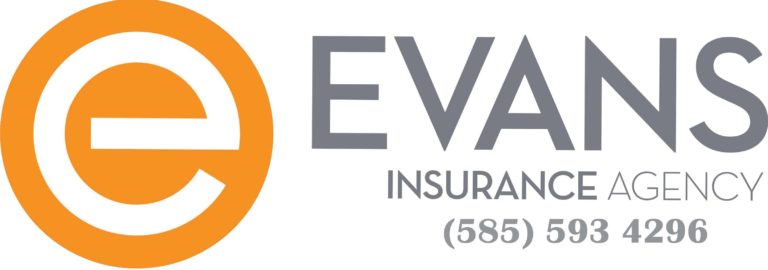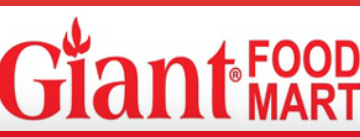Top Frauds Included Retail and Internet Sales Landlord/Tenant, and Credit, Banking & Mortgages
AG James Offers Tips to Avoid Scams, Urges New Yorkers to Report Fraud to Her Office
NEW YORK – New York Attorney General Letitia James kicked off National Consumer Protection Week by releasing a list of the top 10 consumer complaints received by the Office of the Attorney General (OAG) in 2022. The top complaints range from price gouging of infant formula and children’s medication, flight cancellations, and the dramatic increase in gasoline prices. Attorney General James also offers tips on how consumers can avoid common scams.

“My office receives thousands of consumer complaints every year, and we take each one seriously to stop fraudsters from hurting New Yorkers,” said Attorney General James. “From predatory debt collection to price gouging, scammers tried to take advantage of consumers for personal gain, and we took appropriate action to stop it. As always, I urge New Yorkers to stay vigilant and to keep my office informed about potential scams, price gouging, or violations of consumer protection laws.”
The following are the top 10 consumer complaints received by OAG in 2022 by category:
| Category | Description | # of Complaints |
| 1. Retail Sales | Price gouging, retail sales, online purchases, defective merchandise, poor customer service, pet stores, and animal breeders | 5,240 |
| 2. Landlord/Tenant | Security deposit releases, evictions, tenant harassment | 3,014 |
| 3. Credit, Banking & Mortgages | Debt collection, credit card billing, debt settlement, payday loans, credit repair, credit reporting agencies, identity theft, banking, loan modification scams, mortgage lending and servicing | 2,834 |
| 4. Consumer Services | COVID-19 testing facilities, alarm companies, dry cleaners, restaurants, movers, storage facilities, services for personal household use | 2,730 |
| 5. Automobile | Sales, service, financing, repairs | 2,590 |
| 6. Internet | Internet services and service providers, data privacy and security, digital media, frauds through internet manipulation | 2,355 |
| 7. Utilities | Wireless and residential phones, energy servicers and suppliers, cable, and satellite | 1,896 |
| 8. Home Repair/Improvement | Repair issues, deceitful contractors, solar panel installations | 1,264 |
| 9. Travel | Airline customer service, flight cancellations, and refunds | 787 |
| 10. Gasoline Prices | Price gouging, excessive pricing, credit card surcharges | 661 |
Attorney General James offers various tips to protect New Yorkers from future scams:
Retail Sales:
- Be aware of scammers that set up fake websites with product images of well-known brands or hard-to-get products. Before you order from an unfamiliar website, research the company and any online reviews; check for spelling errors on the website or anything that might seem off. If you don’t do a lot of online shopping, ask a friend or relative who does whether the site looks legitimate. Pay only by credit card and not Venmo, Zelle, or money transfer. And if a deal is too good to be true it probably is.
- If you see excessively high prices for infant formula, children’s medication, or other goods vital and necessary for health, safety, and welfare during an abnormal market disruption, you are encouraged to report it immediately to OAG.
Landlord/Tenant:
- Your landlord must return your security deposit within 14 days of you moving out. If your landlord takes any money out of the security deposit for damages, they must provide an itemized receipt describing the damage and its cost. If your landlord doesn’t give you this receipt within 14 days of moving out, then they must return your entire security deposit, whether there is damage or not. If your landlord fails to comply, you may be entitled to up to twice the amount of the security deposit. If your landlord does not give you back your security deposit, you can sue the landlord in small claims court or you can file a complaint with OAG by using our online Rent Security Complaint form.
- Landlords of buildings with six or more units must deposit a tenant’s security deposit into an interest-bearing account in a bank within the state that pays a prevailing rate. The landlord is required to provide notice to the tenant of the name and address of the bank where the security deposit is located. If you do not have this information or if your landlord is not placing your security deposit in an interest-bearing account you can file a complaint with OAG by using our online Rent Security Complaint form.
- You should find out whether you are in a rent stabilized apartment and thus are entitled to one or two year renewal leases at your option and at percentage increases that are established each year by the Rent Guidelines Board. You can find out if your apartment is rent stabilized by filing out this form on New York State’s Housing and Community Renewal’s (HCR) website and selecting “Apartment Rent History.” From the rent history, you should be able to determine if the rent went up in accordance with the rent stabilization guidelines. If it has not and you believe you are being overcharged on the rent you can file an RA-89 Form with HCR.
- Avoid signing back-dated documents from your landlord or the building management company, such as back-dated leases that were not offered to you in a timely way. Not only is signing a back-dated document inaccurate, it may also result in negative legal consequences down the road.
- If you are having trouble paying your rent, please contact your local Department of Social Services (DSS). Check DSS’ website to find their offices across the state. New York City residents can call 311 and ask about rental assistance programs. More resources are available on OAG website.
- For those looking to rent an apartment here are some tips:
- Background-check fees and credit report fees are now limited to $20 and can be waived if you present a copy of a background check or credit check that is less than 30 days old. Landlords and brokers may try to charge a higher fee and say that the amount is “refundable” but that is not allowed under New York law.
- You may not be charged a security deposit that exceeds one month’s rent and may not be required to pre-pay rent, as a condition of obtaining a lease.
- You may not be denied housing that you are otherwise eligible for, on the basis of a history of past or pending landlord and tenant court proceedings.
- You may not be denied housing that you are otherwise eligible for, on the basis that they intend to use a lawful source of income, such as a housing subsidy like a Section 8 voucher, to pay your rent.
Credit, Banking & Mortgages:
- We have seen an increase in foreclosure lawsuits being filed on “zombie second mortgages,” mortgages where the homeowner has not made a payment or heard anything about the mortgage for years. Under New York law, mortgage companies generally can only collect on the last six years of missed mortgage payments; seeking to collect beyond that may be illegal. Please contact the New York State Homeowner Protection Program (HOPP), which includes free legal services attorneys, by visiting their website or calling (855) HOME-456.
- Homeowners are being approached by companies offering “free” cash for a share of equity in their home or to be your realtor at a later date. Be careful of these offers as often there are strings attached that could result in the loss of your home or your inability to sell your home on the open market. If you’re unsure whether an offer like this is too good to be true, seek legal advice or counseling through visiting HOPP’s website or calling (855) HOME-456. Even if the company tells you they can connect you to a lawyer, you should find your own lawyer or counselor.
- Fight Junk Fees! “Junk fees” are unnecessary, unavoidable, or surprise charges that increases the cost of a good or service while adding little to no value for that good or service. These fees may include overdraft fees (fees charged for overdrawing on an account), bounced check fees and fees charged to make a mortgage payment online or through the phone (also known as pay-to-pay fees). If you believe these fees have been wrongly imposed, you should call the company and dispute them. You should also file an online complaint with OAG’s Consumer Frauds Bureau and an online complaint with the Consumer Financial Protection Bureau.
Health Care Costs
- If you were promised a rapid COVID-19 test but received your results later than promised, file an online complaint with OAG’s Consumer Frauds Bureau.
- Under both the No Surprises Act and New York law, hospitals and health care providers are prohibited from billing a patient for more than the in-network co-payment, co-insurance, or deductible costs for certain “surprise” out-of-network bills. These surprise bills include bills for emergency services, non-emergency services, and air ambulance services. If you received a surprise medical bill, you can contact OAG’s Health Care Helpline at 1-800-428-9071, or visit the online portal if you believe that you have been improperly charged for a surprise bill by a health care provider, or that a health plan has improperly assessed cost-sharing for a surprise bill.
Consumer related services (Storage Companies):
- When selecting a storage company for your personal belongings, read the contract fine print for any hidden or additional charges. Also read the fine print for when notice is required to be given for raising rent and terms under which you are deemed to have defaulted.
- Check out online reviews and, in New York City, check to see if the storage company is licensed and bonded.
- If a storage company loses or damages your personal belongings or fails to deliver your personal belongings as promised, you are encouraged to report it to OAG.
Automobile:
- Make sure that what you are signing is what the salesperson told you and that you are not being charged for any extra accessories or products. Never sign documents or leave the dealership with a car until you have read all of your paperwork carefully. Ask for an exact copy of every document you sign to take with you.
- If you electronically sign your contracts for the purchase or lease of a vehicle, you have the right to request a printed copy of your sale or lease contract. Do not leave the dealership before you have obtained a printed copy and reviewed the contract to ensure that the terms of your sale or lease are the same as what was discussed with the salesperson.
- Beware of misleading or tricky sales tactics when purchasing or leasing a car. Do not sign a blank document that does not have numbers or terms filled in. Ask the salesperson or finance manager about any financing, fees or charges you do not understand and whether they are required by law.
- Add-on products, such as insurance or service contracts, are never required to purchase a vehicle or obtain financing for the purchase of a vehicle. You have the right to demand a price or financing terms for a vehicle without any add on products.
Investment Opportunities:
- Be careful of requests to invest money that come through social media, email, text messages, and other online methods. Sometimes these people are not who they say they are, live outside the United States, and may take your money without any way for you to get it back.
- Also be careful of investment opportunities that come through friends, family, and trusted community members. Always do research before handing over your money to see if the people behind the investment opportunity are who they say they are, and if the investment makes sense.
- An investment that “sounds too good to be true” or that promises guaranteed returns or high profits with little risk is probably a scam.
- Avoid “limited time only” investment opportunities and other high-pressure sales tactics — pressure to make a quick decision is a classic warning sign of fraud.
- Investment contracts should always be in writing. You may want to talk to a lawyer about the contract and talk to an accountant about potential tax liabilities before you hand over your money.
- Don’t invest if you don’t understand. Con artists often claim to use complicated, technical or confidential investment strategies, but may simply take your money and run.
Internet:
- Attackers are increasingly targeting personal and financial information obtained through online transactions, particularly where customers and vendors do not take proper precautions. Please consider the following when shopping online.
- Shop Smart. Reputable vendors will often have strong transaction security and encryption, likely decreasing the chances of phishing attacks. You can also check the site’s certificate information or confirm the vendor’s phone number or physical address if you suspect that a website is fraudulent.
- Use a credit card. Credit cards limit customer liability and provide more protection than debit cards linked directly to your bank accounts. Using one credit card allows for easier review of purchases and the ability to freeze disputed transactions.
- Check bank statements. Be vigilant with purchase orders and compare these with your bank statements to find any discrepancies.
- Beware of emails requesting purchase or account information. Reputable vendors will not ask for this type of information via email. If you do receive an unsolicited email, do not open any links and instead visit the actual website by typing in the web address.
- Use secure websites. Legitimate vendors will use secure sockets to encrypt your information. Make sure website URLs begin with “https:” and not “http:” and check for a closed padlock icon in the appropriate place on your browser. This indicates that information on the site is encrypted.
- Check shopping apps. Be careful when shopping through apps. Unlike credit cards, you are liable for all charges made through a shopping app, unless otherwise stated under a vendor’s terms of service.
Utilities:
- If you are thinking of purchasing your energy directly from an energy service company (ESCO), beware of deceptive tactics. Some ESCOs induce consumers to switch to their services, such as promising savings or 100 percent green energy, or switching consumers without their consent.
- Before accepting ESCO service, consumers should ask how their rates compare to the rates provided directly from utility companies, and whether their purchase of an ESCO’s green product will actually support the environment.
- All consumers should remember that if they sign up with any ESCO, they have three days to change their minds without incurring any obligations.
Home Repair/Improvement:
- Many consumers are turning to solar energy for their homes. However, it is important that homeowners thoroughly research the companies and the different products available before making a decision.
- Some companies offer “Power Purchase Agreements” or “PPAs,” where the company owns the panels and you pay for the power produced by the panels, while others allow you to pay for the panels themselves and own the solar energy produced.
- You will still pay your energy company certain set fees, as well as pay for any additional energy you need beyond what the panels produce. Be mindful that PPAs are long-term contracts, generally for 20 years, and cannot be cancelled without severe penalties. Please visit OAG’s consumer guide regarding solar panels.
Travel:
- Over the past year, airlines have been advertising and booking flights they do not have the personnel to operate, which has caused cancellations, delays and forced consumers to incur additional travel costs.
- If your flight gets cancelled or delayed, federal law entitles you to a full cash refund, regardless of the reason. You are also entitled to a refund if an airline makes a significant schedule change and/or significantly delays a flight and you choose not to travel.
- Attorney General James has urged the U.S Department of Transportation to take action to address cancellations and delays, including preventing airlines from selling tickets for flights they cannot provide.
Gasoline Prices:
- You should not be surprised by a credit card surcharge when paying for gas at the pump with a credit card. Merchants are not allowed to advertise a price and add a surcharge at the point of sale when paying for goods or services with a credit card. Instead, merchants are required to inform consumers of the higher credit card price for a product or service by posting the higher price. Merchants can also offer discounts to consumers who pay with cash.
Consumers are encouraged to file complaints by completing and submitting a Consumer Frauds and Protection Bureau online complaint form or by calling (800) 771-7755 if they are unable to submit a form online.








